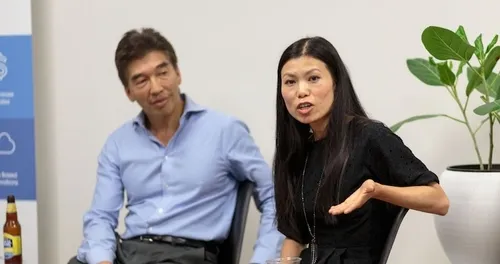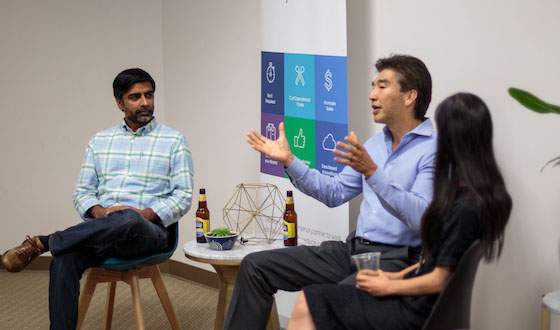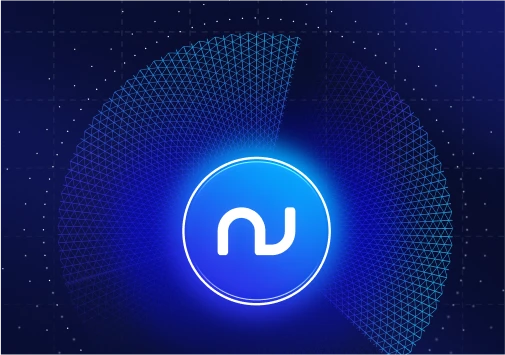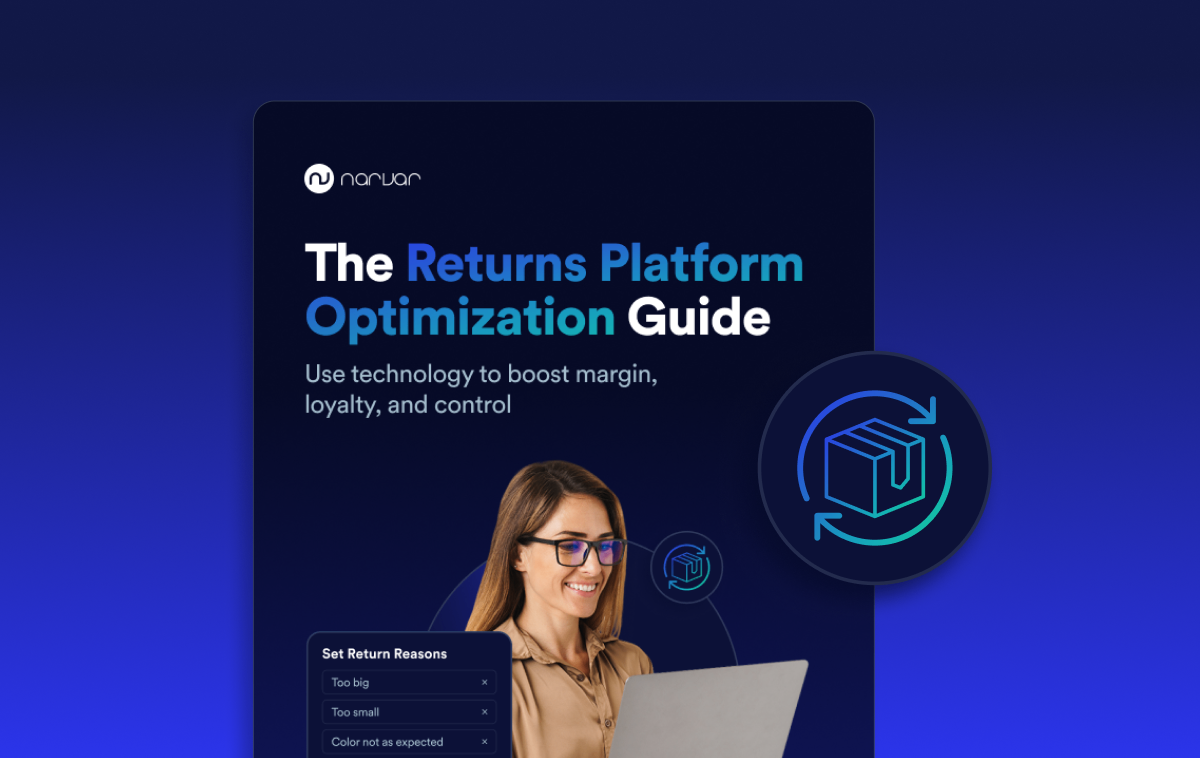

AI-powered delivery date estimates to boost conversion
Give shoppers peace of mind and protect and grow your bottom line
Personalized tracking experiences to build brand loyalty
Returns and exchanges management to mitigate fraud and reward best customers
Proactive communication to drive customer lifetime value
Delivery claim management to tackle fraud and build trust
Investing in the Future of Retail

Narvar regularly invites industry leaders, market innovators and investor partners to come over to our offices for a casual fireside chat. Michael Hsieh & Janie Yu from Fung Capital stopped by soon after their Series B investment to talk about the retail expertise of their parent company, their investing strategy and the state of the retail industry.
The name Li & Fung might sound foreign to many shoppers, but chances are, the 110 year old company has played a major part getting their favorite products into their hands. From humble beginnings in 1906, founded by two merchants in Hong Kong, the Fung family has grown the company into one of the biggest international trading and logistics businesses in the world, powering many of the world’s greatest brands and moving over $100 billion worth of merchandise in 2015.Li & Fung’s pervasive presence in the consumer goods industry is no accident. Throughout its long history, the company has swiftly and successfully reacted to many profound changes in global commerce which has kept them on the cutting edge of global trends. Fung Capital USA was established to identify and nurture new technologies with the potential to change the retail industry. Headed by Michael Hsieh and partners John Seung and Janie Yu, Fung Capital USA manages a balanced portfolio of retail technology startups, including Narvar.
"We invest in technology that helps retailers better understand and engage with their customers, and their logistics." - Janie Yu, Fung Capital
Amit Sharma (Narvar Founder & CEO): We’re very excited to have Janie and Michael here today from Fung Capital. Janie and Michael, maybe you can start by telling us a bit about your background and how you invest?Janie Yu: Mike started the fund thirty years ago, with success investing in brands like The Gap and J. Crew, but about ten years ago we took a hard look at the retail landscape and realized the biggest gap between retail and supply chain was technology. We want to invest in technology that helps retailers better understand and engage with their customers, and their logistics.For a long time, logistics was incredibly boring, but these days -- all of a sudden -- logistics is the sexy new thing! We had always been investing in logistics and supply chain--that really is our area of expertise. Now, with everyone so hot on it, we’re being very disciplined about our investments.Michael Hsieh: Retail used to be driven by designers and merchants who built their businesses on intuition about the next big fashion or style. But if you look at retail today, the battle is being fought on supply chain. It’s all about quick-turn: experimenting, putting product on the floor, being able to restock products that sell without having to keep inventory. The shorter turn time you have, the more successful you can be. Victor and William Fung say, ‘Retail competition is no longer storefront-to-storefront; it’s supply-chain to supply-chain.’ That understanding is what Li & Fung focuses on, and it’s also what we look for in our investments.
Victor and William Fung say, ‘Retail competition is no longer storefront-to-storefront; it’s supply-chain to supply-chain.’
So we only do about two or three deals a year, but we screen many, many companies. We look for a deep understanding of supply-chain--especially the information and the collaboration that come from it. We track them, and when we see the core team have the capabilities and understanding of how to build a business, we get very excited. When we met Amit, we thought, ‘this guy knows supply chain!’ We saw you build a platform on top of that, and create something really powerful--the rest is history.AS: We’re obviously very happy to be part of the Fung Capital family now. You mentioned that logistics is becoming the hot new thing. Part of that--and what we’re involved in--is logistics becoming more customer-facing. It’d be great to hear from your point of view how you see this trend.JY:When Li & Fung looks at logistics and the entire supply chain, we don’t look at solutions that just address international shipping, or just distribution, or just last-mile delivery. We believe that for supply chain to be truly effective, we need to be able to move goods directly from the factory to the consumer--to cut out the middleman. And we need solutions that are very much pieces in that big picture. The last piece--consumer facing logistics, where you guys are--is an important place to demonstrate value to a consumer.Retailers are still going to be important, of course. The stores are the experience centers for products. They’ll just no longer need to hold inventory, or own warehouses. Customer-facing logistics is a final step in building a truly effective supply chain that brings products from manufacturers to consumers--and back, if necessary.

MH:Opening the channels from factory to consumer will be very important in the future. Li & Fung has 100,000 square feet of space in Shanghai dedicated to retail experimentation and the stores of the future--integrated entertainment, augmented reality, virtual reality--increasing engagement and also producing information that can be fed back into the supply chain. What we’re really looking forward to is walking into a store, having a personalized, immersive experience, and buying a customized product that is manufactured specifically for you and shipped directly to your home.AS: That’s amazing, and I’m really looking forward to that too. But to get to that advanced future, don’t retailers have to adopt today’s new platforms now? Are you seeing change from your point of view and what strategies do you have for effecting that change?MH:Well, retailers are very conservative. They’ll have to have ‘chest pains’ before they go see the cardiologist. But when the discomfort becomes too great and you’re ready to see the cardiologist, you want to see the best. You’ll ask your friends--a trusted party--for a referral. You won’t just go on Yelp for the lifeblood of your business.We actually feel that the time is now--they are feeling the pains. And we see that because we are their partners. We talk to the C-suites, we know they’re asking a lot of questions. And here’s where we can offer a lot of value too: we are the trusted party, and can make the trusted referral. So when we offer a solution, “Hey, use Narvar, or Tulip, or HookLogic,” they really pay attention.
"I think running a company and managing a lot of people, maintaining a vision, inspiring people, that’s the hardest thing. Finding people like you is much easier than being you." - Michael Hsieh, Fung Capital
AS: Janie and Michael, I know a lot of us here see VC as being a glamorous occupation, but I also know it’s something you put a lot of time into. You both have families, do you want to talk a bit about how you approach your work from a personal perspective?MH:Well, I tip my hat to you entrepreneurs, actually. I had the experience of taking over a company one time--I did it for three years--and it was the toughest thing I’ve ever done in my life. I think running a company and managing a lot of people, maintaining a vision, inspiring people, that’s the hardest thing. Finding people like you is much easier than *being* you.JY:Being a VC is not as sexy as people think. It’s definitely a lot of hard work. For the people here who work in the sales team: the sales cycle is a major metric you track, right? Well, our ‘sales cycle’ is really long. We’re talking about five years here. And there’s a lot of work involved along the way, so it’s definitely not easy or sexy.
"In a family, you shouldn’t hide your problems from each other. We solve our challenges together, and there’s trust that we’ll get the job done." - Janie Yu, Fung Capital
But that being said, culture is what consistently makes the work worthwhile. Within our Fung Capital team, and within the broader Fung Group as well, there really is a family-oriented culture. Now, Fung Group is something like 40,000 people, so it might be hard to believe that it feels like a family, but it does. I think what that means is being very open with communication and voicing our challenges. In a family, you shouldn’t hide your problems from each other. We solve our challenges together, and there’s trust that we’ll get the job done.We look for, and also extend this trust and culture to our portfolio companies. That’s another thing that impressed us about Narvar. You guys have put together a smart, scrappy, creative and open team--a great match to our family-oriented culture. And we plan to work closely with you in the future, as family--not just with Amit as the CEO, but directly with you. I’d love to be a resource for the sales and marketing teams. It’s our goal to remove communication barriers between us and our portfolio companies, and I hope you’ll let us know whenever you have good news, but more importantly, when you have challenges as well.AS: Well, thank you so much for coming and spending time with us. We hope to have you here more often to share your valuable insights as we partner together for the future!You can follow Janie on Twitter @Janie_Y_Yu, or Narvar @narvarinc.

























